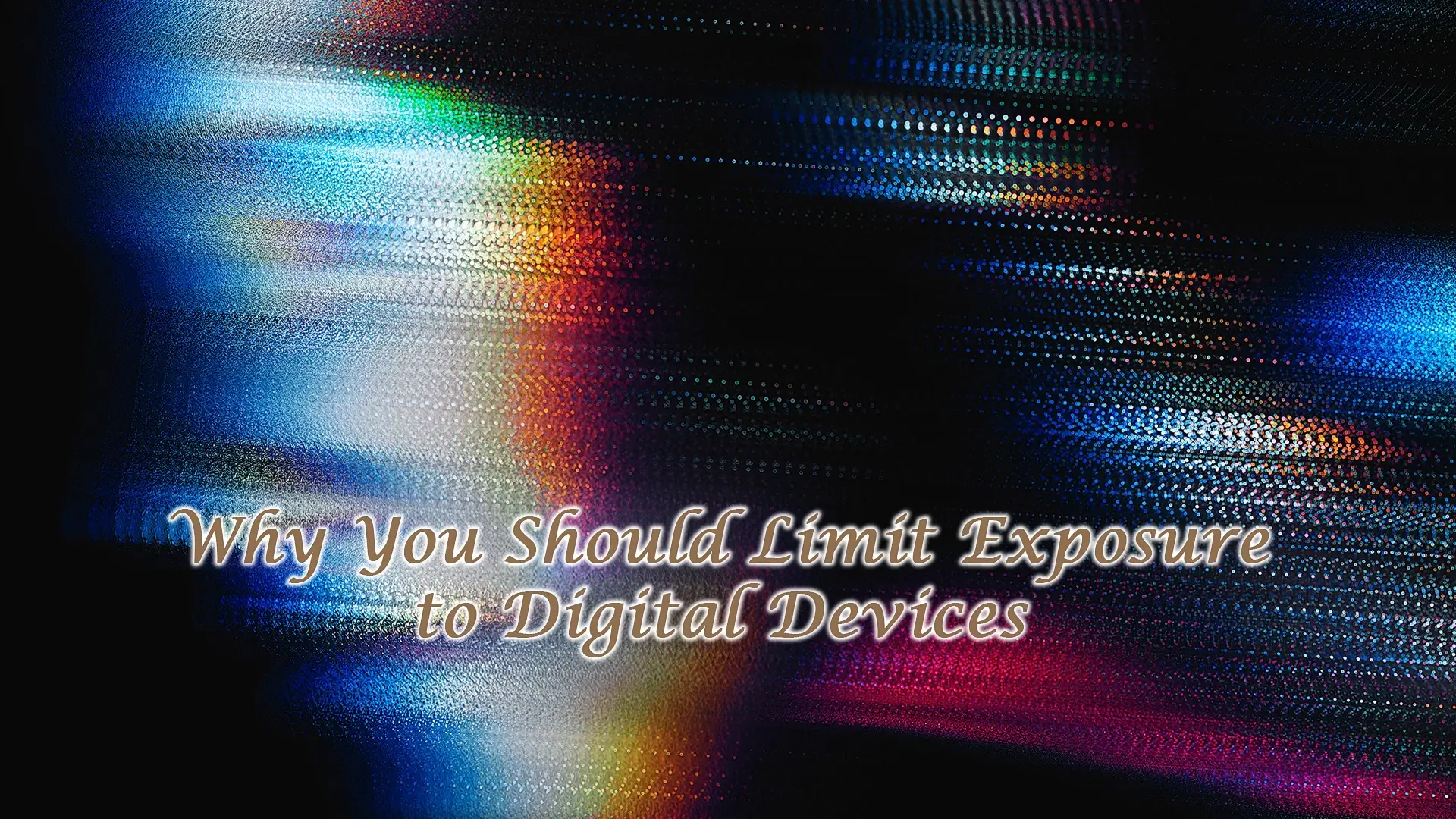The Importance of Limiting Exposure to Digital Devices
In today’s fast-paced world, digital devices have become an integral part of our daily lives. From smartphones and tablets to laptops and smartwatches, technology surrounds us at every turn. While these devices offer numerous benefits, excessive use can have detrimental effects on our health and well-being. In this article, we’ll explore why you should limit exposure to digital devices and how to strike a healthy balance between screen time and real-life experiences.
Health Concerns
One of the most compelling reasons to limit exposure to digital devices is the potential impact on our physical and mental health. Prolonged screen time has been linked to various health issues, including eye strain, headaches, and disrupted sleep patterns. The blue light emitted by screens can interfere with our circadian rhythm, making it difficult to fall asleep and stay asleep at night.
Moreover, excessive screen time is associated with a sedentary lifestyle, which can increase the risk of obesity, heart disease, and other chronic conditions. Spending too much time sitting in front of a screen reduces the time available for physical activity, leading to a more inactive lifestyle.
Productivity Decline
Another reason to limit exposure to digital devices is the negative impact on productivity. While technology has made many aspects of our lives more convenient, it can also be a significant source of distraction. Constant notifications, social media updates, and emails can disrupt our focus and make it challenging to concentrate on important tasks.
Research has shown that multitasking, which is common when using digital devices, can actually decrease productivity and impair cognitive function. By limiting screen time and minimizing distractions, we can improve our ability to focus and complete tasks more efficiently.
Social Isolation
Excessive use of digital devices can also contribute to social isolation and feelings of loneliness. While technology allows us to stay connected with others, it can also replace meaningful face-to-face interactions. Spending too much time on social media or playing video games can detract from real-life relationships and lead to a sense of disconnection from the world around us.
By limiting screen time and prioritizing in-person interactions, we can foster deeper connections with family and friends and strengthen our social support networks.

Mental Well-being
In addition to physical health concerns, excessive screen time can also take a toll on our mental well-being. Studies have shown that heavy use of social media can contribute to feelings of anxiety, depression, and low self-esteem. Comparing ourselves to others online can lead to unrealistic expectations and feelings of inadequacy.
Furthermore, the constant barrage of information and stimuli from digital devices can overwhelm our brains and contribute to stress and mental fatigue. Taking regular breaks from screens and engaging in activities that promote relaxation and mindfulness can help protect our mental health and well-being.
Tips for Limiting Exposure to Digital Devices
While the allure of digital devices may be strong, it’s essential to establish boundaries and limit screen time to protect our health and well-being. Here are some practical tips for reducing exposure to digital devices:
- Set limits on screen time for yourself and your family members. Establish designated times for using digital devices and stick to them.
- Create screen-free zones in your home, such as the bedroom or dining room, where digital devices are not allowed.
- Use technology tools, such as screen time tracking apps, to monitor and manage your device usage.
- Prioritize real-life experiences and activities over screen time whenever possible. Spend time outdoors, engage in hobbies, and connect with loved ones face-to-face.
- Practice mindfulness and be intentional about how you use digital devices. Limit mindless scrolling on social media and focus on activities that bring you joy and fulfillment.
By implementing these strategies, you can reduce exposure to digital devices and create a healthier balance between technology use and real-life experiences.
And so
While digital devices have revolutionized the way we live, work, and communicate, it’s essential to recognize the importance of limit exposure to digital devices. Excessive screen time can have significant implications for our health, productivity, and overall well-being. By setting boundaries, prioritizing real-life experiences, and practicing mindfulness, we can strike a healthy balance between technology use and living our best lives. So, take a step back, unplug, and enjoy the world beyond the screen. Your mind, body, and spirit will thank you for it.



These suggestions will be helpful in establishing healthy device usage habits for the whole family.
As a parent, I’ve struggled with finding a balance between allowing my children to use technology for educational purposes and ensuring they don’t spend too much time in front of screens.
I couldn’t agree more with the importance of reducing screen time. As someone who has experienced the negative effects of excessive device use firsthand
This article highlights a crucial issue in today’s society. With the increasing reliance on digital devices, it’s easy to overlook the potential negative impacts on our health and well-being.